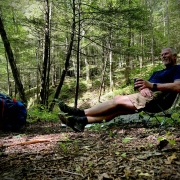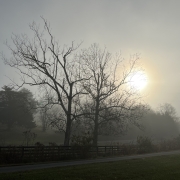How to Find Your Own Mr. Miyagi | Healthy Aging Series: S8, E10
This blog references “Triumphs of Experience”: The Men of the Harvard Grant Study,” Written by George E. Vaillan
“Better learn balance. Balance is key. Balance good, karate good. Everything good. Balance, bad, better pack up, go home. Understood?” Mr. Miyagi
“First learn stand, then learn fly. Nature rule, Danielson, not mine.” Mr. Miyagi
“Lesson not just karate only. Lesson for whole life. Whole life must have a balance. Everything be better.” Mr. Miyagi
“Never trust spiritual leader who cannot dance.” Mr. Miyagi
Mr. Miyagi represents the mature, aging man or woman. The quotes above, to Daniel, are from his many years of experience, learning from good and bad decisions, learning from being out of balance, learning from the mistakes of trying to fly without, first, knowing how to stand, and from learning to follow leaders, who did not know how to dance. There was a maturity about Mr. Miyagi‘s words to Daniel-San.
Mr. Miyagi represents the image of a focused, giving, and wise, aging adult.
Do you know any Mr. Miyagi‘s? I can name a few. But, maybe a more important question is: How do you find a Mr. Miyagi? What does a real Mr. Miyagi look like?
The Harvard Grant Study
We’ve been looking at the Harvard Grant Study. George Vaillant, in his book, Triumph of Experience,” gives us a snapshot of maturing, aging men. This is my last blog on the Harvard Grant Study. The details of this study document the lives of 268 men, starting in 1937 and following them through to 2010. In the last blog of this season I want to focus on what it means to be a maturing, aging adult. I want to share two life task that indicate that an adult is maturing or getting wise.
What did Vaillant discover from examining the lives of 268 men as they aged? Vaillant writes that, “In a sense it was their ability to transcend decay and maintain human dignity, despite the ravages of mortality.“ What Vaillant discovered was that those men, who had completed certain life tasks, aged well.
Life Task One
The first task he calls generativity or what I would I call, “giving back.” Vaillant defines generativity as a capacity to foster and guide the next generation to independence. It means giving back or paying forward, for the guidance and mentoring that others gave to you.
I can name a few that gave back by giving to me. Bill K. Ken N. Clifford V. Allen N. And I can recall many, many others that I chose to keep unnamed. Men and women that shepherded me and shared their lives with me. They were my Mr. Miyagi.
Life Task Two
Valent list a second task which he calls Integrity, and I call “letting go.”
“How do we maintain hope,” he asks, “when the inevitability of death is staring us in the face?”
The answer is letting go.
In some sense, it means divesting yourself of the things that you have fought so hard to keep, like your home, your health, or your things.
Betty Neese was my Mr. Miyagi
In this sense, my mother was my “Mr. Miyagi.“ More than anyone else, she has helped me come to terms with the process of dying. She did not appear to have a shred of fear of dying. When I asked her what she thought about being 60, 70, or 80, she responded “I love the age I am right now. I would never want to be younger.“ What words of wisdom! She taught me to let go. She was my Mr. Miyagi.
Finding You Mr. Miyagi
How do you find your Mr. Miyagi? Maybe they are already in your circle of friends, family, or acquaintances.
First, look for someone who is a giver.
Has an older person invited you to coffee or to walk in the park? Is there an older person that inspires you to be a better person?
Second, look for someone that is letting go.
Look for someone who has started loosening their a hold on the reins of this world. Look for someone who values the inner world, and not just things. Find a Stoic.
Stoicism is a philosophy of life that teaches us to stop wanting more things, and start learning to value the things and people we already have.
I think, as we age, and as we mature, we begin divesting ourselves from things, and we begin looking for ways of giving back. We begin looking for ways of letting go of the things that have given us so much meaning in our lives, and investing in others.
Many of the men from the Harvard Grant Study accomplished these two tasks: giving back and letting go.
Maybe the unasked question is: Are you becoming a Mr. Miyagi for a “Daniel“ in your life? If not, begin learning balance. Begin learning how to stand, and then learning to fly.
And then, begin learning how to dance.
To read more entries in the Healthy Aging series, click here.




